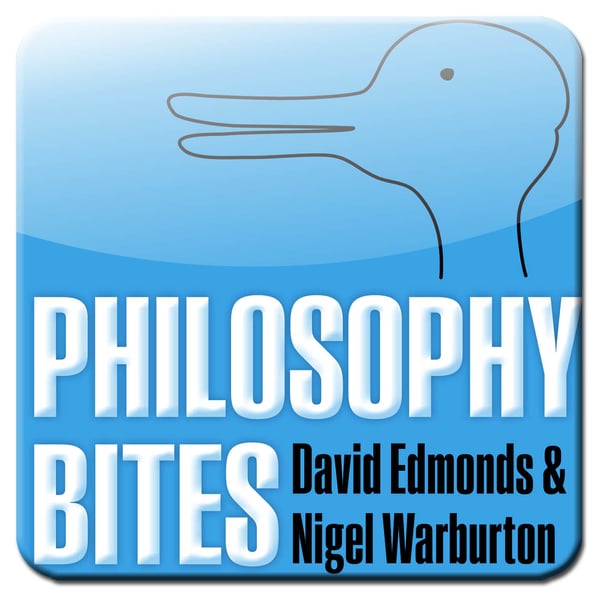NIck Bostrom on the Status Quo Bias
Philosophy Bites
Nigel Warburton
4.6 • 2K Ratings
🗓️ 13 May 2012
⏱️ 19 minutes
🧾️ Download transcript
Summary
Are we systematically biases against changing the status quo? It seems that we are. In this interview, originally released as part of the Bioethics Bites series, Nick Bostrom discusses this tendency and its implications when it comes to making decisions about cognitive enhancement. Bioethics Bites is made in association with the Oxford University Uehiro Centre for Practical Ethics and made possible by a grant from the Wellcome Trust.
Transcript
Click on a timestamp to play from that location
| 0:00.0 | This is Bioethics Bites with me David Edmonds and me Nigel Warburton. |
| 0:05.0 | Bioethics Bites is made an association with Oxford's Uhero Center for Practical Ethics |
| 0:10.0 | and made possible by a grant from the Welcome Trust. |
| 0:12.8 | For more information about bioethics bites, |
| 0:15.2 | go to W.W. |
| 0:17.1 | practical ethics. |
| 0:18.6 | OX. |
| 0:21.6 | or to iTunes you. |
| 0:23.0 | Suppose a genetic engineering breakthrough made it simple, safe and cheap to increase people's |
| 0:28.8 | intelligence. |
| 0:29.8 | Nonetheless, if you ask the averagely intelligent person on the Clapham omnibus, whether we should |
| 0:35.5 | tamper with our genes to boost our brains, he or she might recoil at the notion. |
| 0:41.2 | Nick Bostram, director of the Future of Humanity Institute at Oxford University, suspects that this reaction may be a result of what he calls status quo bias. |
| 0:51.0 | Nick Bostrom, welcome to Bioethics Bites. Good to be with you. We're going to focus on the status quo bias. What is that? A status quo bias is a preference for the status quo just because it is the status quo a preference that is inappropriate or irrational. |
| 1:08.0 | So could you give an example of that? |
| 1:11.0 | Well, cognitive psychologists have experimented in different settings with people's responses, and they find that in many cases, just because an alternative is presented as the status quo, it makes it more attractive. |
| 1:24.0 | One experiment subjects were given either a decorated coffee cup or a large chocolate bar |
| 1:31.0 | randomly, and then they were allowed to exchange the particular gift |
| 1:35.4 | that had been given for the other gift just by holding up a card saying trade and |
| 1:38.8 | it turns out that in this kind of experiment 90% of the subjects prefer to stick with their original gift. |
| 1:46.2 | This is known as the endowment effect. As soon as something has become yours, you become |
| 1:51.4 | unwilling to part with it, even for something that ex ante would have been just as valuable. |
... |
Please login to see the full transcript.
Disclaimer: The podcast and artwork embedded on this page are from Nigel Warburton, and are the property of its owner and not affiliated with or endorsed by Tapesearch.
Generated transcripts are the property of Nigel Warburton and are distributed freely under the Fair Use doctrine. Transcripts generated by Tapesearch are not guaranteed to be accurate.
Copyright © Tapesearch 2025.

